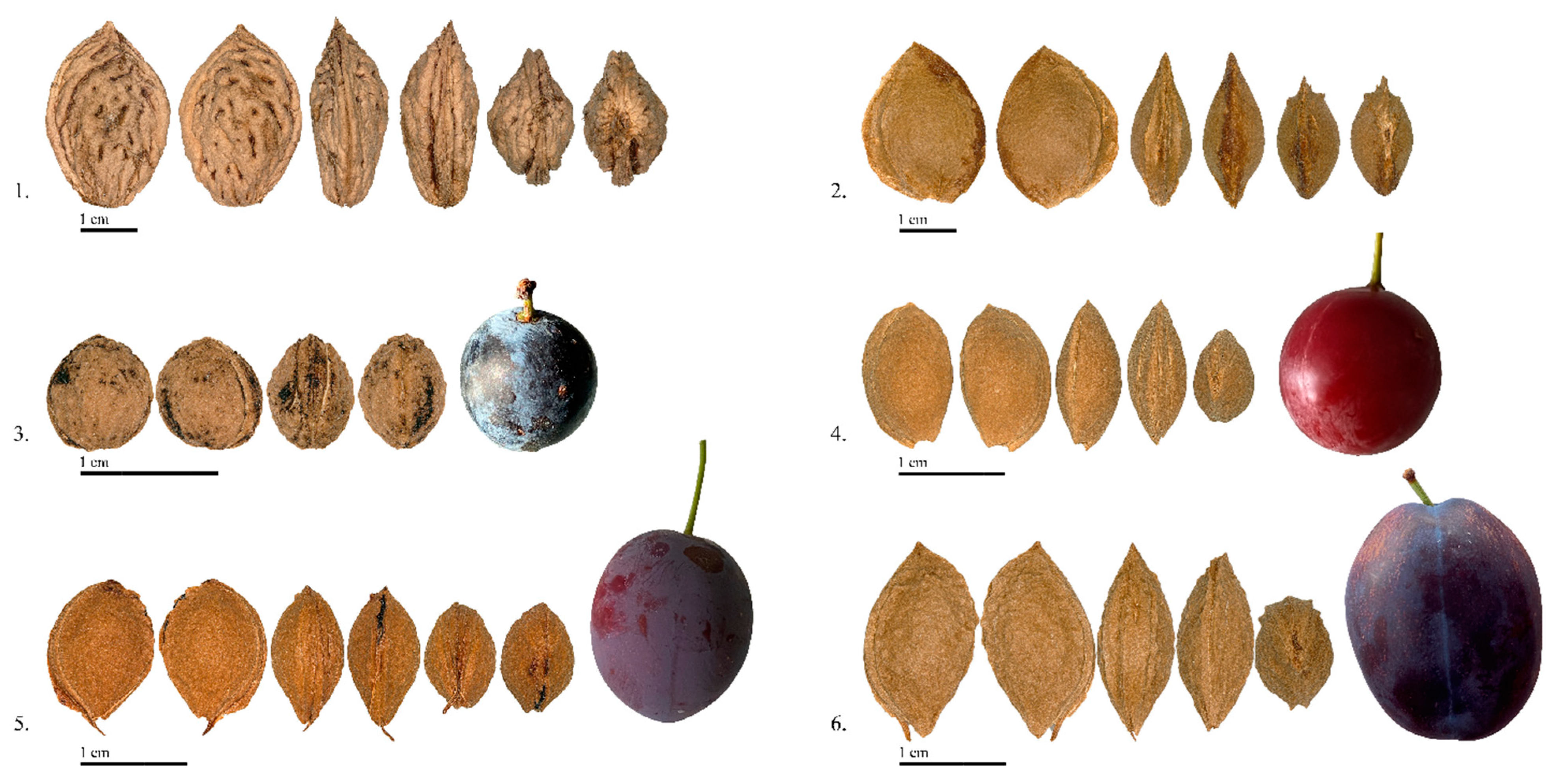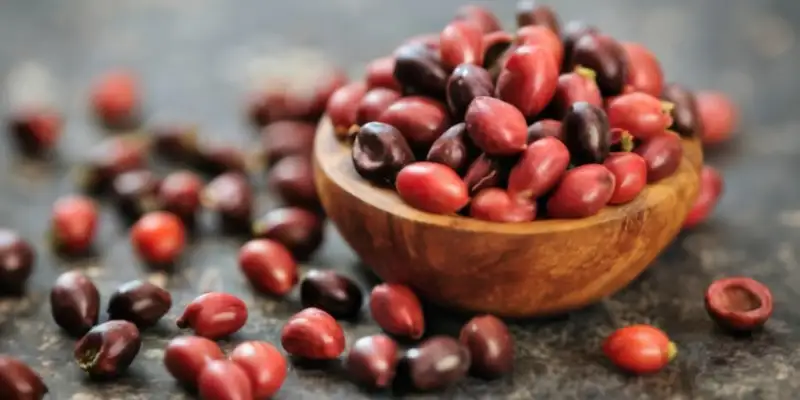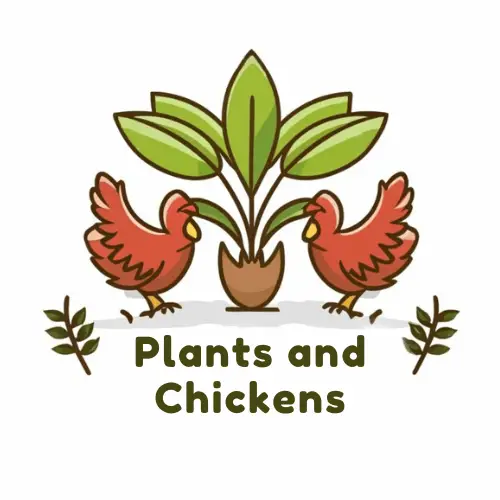No, chickens should not consume plum seeds due to the potential health risks they pose. Plum seeds contain traces of cyanide, which can be harmful or even fatal to chickens.
Chickens are omnivorous creatures known to have a diverse palate, but not all foods are safe for them to eat. When it comes to plum seeds, it is important to be cautious as chickens should not consume them. Plum seeds contain cyanide, which can be toxic and pose significant health risks to chickens.
Therefore, it is crucial to ensure that chickens do not have access to plum seeds to keep them safe and healthy. We will delve into the reasons why chickens should not eat plum seeds and explore other suitable alternatives for their diet.
Table of Contents
Can Chickens Eat Plums?
Chickens can eat plums, including the flesh and skin. However, it’s important to remove the seeds as they can be toxic to chickens. Plums can be a healthy and tasty snack for your feathered friends.
The Benefits Of Feeding Plums To Chickens
Chickens can indeed eat plums and enjoy them as a healthy snack. Plums are part of the same fruit group as peaches, apricots, and nectarines, making them a great addition to your chickens’ diet. Here are some benefits of feeding plums to your feathered friends:
- Plums are rich in essential nutrients such as vitamins A, C, and K, which are important for chickens’ overall health and well-being.
- The juicy flesh of plums can serve as a refreshing treat for chickens, especially during hot summer days.
- Plums contain antioxidants that can help boost your chickens’ immune system, protecting them from illnesses.
- The natural sugars in plums can provide chickens with a quick energy boost.
Potential Risks Of Feeding Plums To Chickens
While plums can be a nutritious addition to your chickens‘ diet, it’s important to be aware of the potential risks involved:
- Plums are high in sugar, so it’s essential to offer them in moderation. Too much sugar can lead to obesity and other health issues in chickens.
- Ensure that the plums offered to chickens are ripe and free from mold or rot. Consuming spoiled fruit can cause digestive problems.
- Chickens should not consume plum seeds, as they can be a choking hazard and potentially toxic.
Guidelines For Feeding Plums To Chickens
To safely and effectively feed plums to your chickens, consider the following guidelines:

Credit: www.mdpi.com
Other Fruits Chickens Can Eat
Chickens can eat plums, but they should avoid the seeds as they contain cyanide. Plums can be a healthy snack for chickens, providing them with nutrients and juicy flesh.
Watermelon
Chickens absolutely love watermelon, especially on a hot summer day. You can treat your feathered friends with this delicious fruit, including the plump seeds. Watermelon seeds are safe for chickens to eat and can be a great source of protein and healthy fats. Just make sure to provide seeded watermelon in moderation, as it is high in sugar.
Cucumbers
Cucumbers are another fruit that chickens can enjoy. They are hydrating and packed with vitamins and minerals, making them a healthy treat for your birds. Whether you feed them whole or sliced, chickens will happily peck at cucumbers. There’s no need to worry about the seeds; chickens can eat cucumber seeds with no problems.
Grapes
Grapes are a sweet and juicy fruit that chickens can indulge in. Whether it’s red, green, or purple, chickens will gladly gobble up grapes. The best part is that they can eat the grapes with seeds. Just make sure to remove any large stems to avoid any potential choking hazards. Grapes can be a great source of hydration and antioxidants for your feathery friends.
In conclusion, chickens can enjoy a variety of fruits, including watermelon, cucumbers, and grapes. Not only are these fruits delicious, but they also provide essential nutrients for your feathered friends. Just make sure to offer these treats in moderation, and your chickens will be happy and healthy.

Kitchen Scraps And Feeding Laws
Chickens can eat plums in moderation as a healthy snack, but they should avoid consuming the plum seeds. Plums are known for their nutrients and juicy flesh, making them a tasty treat for your chickens.
Why Feeding Kitchen Scraps To Chickens Is Illegal
Feeding kitchen scraps to chickens may seem like a convenient and cost-effective way to provide them with additional food and nutrients. However, there are important reasons why it is illegal in many places to feed chickens kitchen scraps. The primary concern is the prevention of disease transmission.
Preventing Disease Transmission
Chickens are susceptible to various diseases, and feeding them kitchen scraps increases the risk of disease transmission. This is especially true when it comes to meat products. Contaminated food, such as leftover meat or dairy products, can contain harmful bacteria or pathogens that can make chickens sick. These pathogens can then be passed on to other chickens or even to humans who consume their eggs or meat.
The laws prohibiting the feeding of kitchen scraps to chickens aim to minimize the risk of disease and ensure that chickens remain healthy. This helps to maintain the overall well-being of the flock and reduces the potential for disease outbreaks.
Alternatives To Kitchen Scraps
While feeding kitchen scraps to chickens may be off-limits, there are plenty of alternative options to provide them with a varied and nutritious diet. Consider incorporating the following alternatives into your chickens’ feeding routine:
1. Commercial Chicken Feed: Commercial chicken feed is specifically formulated to provide chickens with the necessary nutrients they need to thrive. It comes in various forms, including pellets, crumbles, and mash, and is widely available.
2. Fresh Vegetables: Chickens enjoy a variety of fresh vegetables, such as leafy greens, carrots, and zucchini. These can be chopped into small pieces or grated for easy consumption.
3. Grains: Whole grains like corn, wheat, and barley are excellent sources of energy for chickens. You can either cook them or offer them in their raw form.
4. Fruits: Many fruits are safe for chickens to eat in moderation. Examples include apples (without the seeds), berries, and melons. Avoid giving them fruit seeds or pits as they can be harmful.
Safe Foods for Chickens
- Fresh Vegetables
- Grains
- Fruits (seedless)
- Herbs
- Crushed Oyster Shells (for calcium)
- Mealworms
Foods to Avoid
- Kitchen Scraps
- Meat Products
- Dairy Products
- Fruit Seeds/Pits
- Fatty or Fried Foods
- Junk Food or Processed Snacks
Remember, providing a balanced and nutritious diet is crucial for the health and wellbeing of your chickens. By adhering to feeding laws and offering various alternative food options, you can ensure that your feathered friends stay happy and healthy.
In conclusion, while feeding kitchen scraps to chickens may seem like a convenient option, it is important to prioritize their health and follow the laws regarding feeding practices. By understanding the reasons behind these laws and offering suitable alternatives, you can provide your chickens with a nutritious and safe diet.
The Truth About Plum Seeds
Chickens can eat plums in moderation as a healthy snack, although plums are high in sugar. It is important to avoid giving them plum seeds as they can be harmful.
Can Chickens Eat Plum Seeds?
Yes, chickens can eat plum seeds. Plum seeds are safe for chickens to consume, as long as they are given in moderation. Chickens are omnivores and can consume a variety of foods, including fruits and their seeds.
Potential Dangers Of Plum Seeds
While plum seeds are generally safe for chickens to eat, there are some potential dangers to keep in mind. Plum seeds, like other fruit seeds, contain traces of cyanide. However, the amount of cyanide in plum seeds is not enough to harm chickens when consumed in small quantities.
It is important to note that cracked or damaged seed shells can release more cyanide, so it is recommended to remove the shells before feeding plum seeds to chickens. Additionally, excessive consumption of plum seeds can lead to digestive issues such as diarrhea. Therefore, it is best to offer plum seeds as an occasional treat rather than a regular part of their diet.
Safe Handling And Feeding Of Plum Seeds
When feeding plum seeds to chickens, it is important to handle them with care. Here are some guidelines to ensure safe handling and feeding:
- Always wash the plums thoroughly before removing the seeds.
- Crack the seed shells carefully to remove the seeds without damaging them.
- Offer the plum seeds in moderation, as part of a balanced diet.
- Monitor your chickens’ digestion after feeding plum seeds and discontinue if any issues arise.
Remember, variety is key in a chicken’s diet, so it is important to offer a wide range of fruits, vegetables, grains, and proteins to ensure they receive all the necessary nutrients. While plum seeds can be a tasty and nutritious treat for chickens, it should not replace their main diet.

Can Chickens Eat Stone Fruit Pits?
Chickens should not eat stone fruit pits such as plum seeds, as they can be harmful. Plum seeds contain cyanide, which can be toxic to chickens. It’s best to avoid feeding plum seeds to your chickens and stick to safer food options for them.
The Cyanide Content In Apple Seeds
One stone fruit pit that chickens should definitely avoid is apple seeds. These small seeds may seem harmless, but they actually contain trace amounts of cyanide. Yes, you read that right – cyanide! While the amount of cyanide in apple seeds is typically not enough to harm humans, chickens are much smaller and more vulnerable to the effects of this toxic substance.
Other Stone Fruit Pits To Avoid
In addition to apple seeds, there are other stone fruit pits that chickens should stay away from. Apricots, cherries, peaches, and plum pits all contain substances that can be harmful to chickens. These pits contain compounds similar to amygdalin, which can release cyanide when ingested. To ensure the safety of your chickens, it’s best to remove these pits before offering the fruits to your flock.
Safe Options For Stone Fruit
While many stone fruit pits are off-limits, there are still safe options to include in your chickens’ diet. The flesh of fruits like apples, apricots, cherries, peaches, and plums can be a delicious and healthy treat for your flock. Just make sure to remove any pits before giving the fruit to your chickens.
It’s important to note that moderation is key when it comes to feeding stone fruits to your chickens. Fruits are high in sugar and should be given as an occasional treat rather than a regular part of their diet. Too much sugar can negatively impact their health and lead to weight gain and other issues.
Finally, always remember to introduce new foods gradually and observe your chickens’ reactions. Every chicken is different, and some may have allergies or sensitivities to certain fruits. By being attentive and cautious, you can ensure that your chickens stay happy and healthy!
The Importance Of Balanced Nutrition For Chickens
Just like humans, chickens also require a balanced diet to stay healthy and thrive. Providing them with the right nutrients is essential for their growth, egg production, and overall well-being. A well-balanced diet ensures that chickens have the energy they need to carry out their daily activities and maintain a strong immune system.
Chickens require a mix of macronutrients and micronutrients to meet their dietary needs. Here are some essential nutrients that should be included in their diet:
- Protein – Protein is crucial for muscle development and egg production. Good sources of protein for chickens include soybean meal, fish meal, and mealworms.
- Carbohydrates – Carbs provide the necessary energy for chickens. Corn, wheat, and barley are commonly used carbohydrate sources in chicken feed.
- Fats – Fats help with nutrient absorption and promote healthy feather growth. Vegetable oils and animal fats are suitable sources of fats for chickens.
- Vitamins and Minerals – Chickens need a wide range of vitamins and minerals, including vitamins A, B, D, E, calcium, phosphorus, and selenium. These nutrients are essential for bone health, proper eggshell formation, and overall immunity.
A balanced diet for chickens consists of various feeds and supplements that provide a good mix of essential nutrients. Commercial chicken feeds are formulated to meet their nutritional requirements. However, it’s important to introduce a variety of foods to their diet to ensure they get a wide range of nutrients.
Here are some tips for creating a balanced diet for your chickens:
While commercial chicken feeds are designed to provide the necessary nutrients, supplementing their diet with additional sources can help ensure they receive a well-rounded diet. Adding fresh fruits, vegetables, and protein-rich treats can provide variety and additional nutrients.
However, it’s important to avoid feeding chickens certain foods like chocolate, avocado, onions, and caffeine, as these can be harmful to their health.
In conclusion, providing chickens with a balanced diet is crucial for their health and well-being. By including a mix of essential nutrients and supplementing their diet with fresh foods, you can ensure that your feathered friends have everything they need to lead a healthy and happy life.
Frequently Asked Questions On Can Chickens Have Plum Seeds
What Seeds Can Chickens Not Eat?
Chickens should not eat stone fruit pits or apple seeds because apple seeds contain cyanide.
Can Chickens Eat Blood Plums?
Chickens can eat blood plums in moderation. Plums are high in sugar, so it’s important not to give the chickens too much.
Why Is It Illegal To Feed Chickens Kitchen Scraps?
Feeding chickens kitchen scraps is illegal to prevent disease transmission. Contaminated food can cause illnesses in chickens, which can then be passed on to humans.
Do Chickens Eat Fruit Seeds?
Yes, chickens can eat fruit seeds like plum seeds. However, they should be given in moderation due to the high sugar content. Plums are a healthy and nutritious snack for chickens.
Conclusion
Do chickens eat Plums? It’s a resounding yes! Plums, with their juicy flesh and nutrient-rich composition, make for a healthy and irresistible snack for chickens. However, moderation is key as plums are high in sugar. While chickens can enjoy various fruits like plums, it’s essential to avoid feeding them stone fruit pits or apple seeds due to potential toxicity.
As always, providing a balanced and varied diet is essential for the overall health and well-being of our feathered friends.


![Terrifying Trend: Why Do Roosters Chase Humans? [2024]](https://plantsandchickens.com/wp-content/uploads/2024/02/why-do-roosters-chase-humans-4.webp)


Leave a Reply